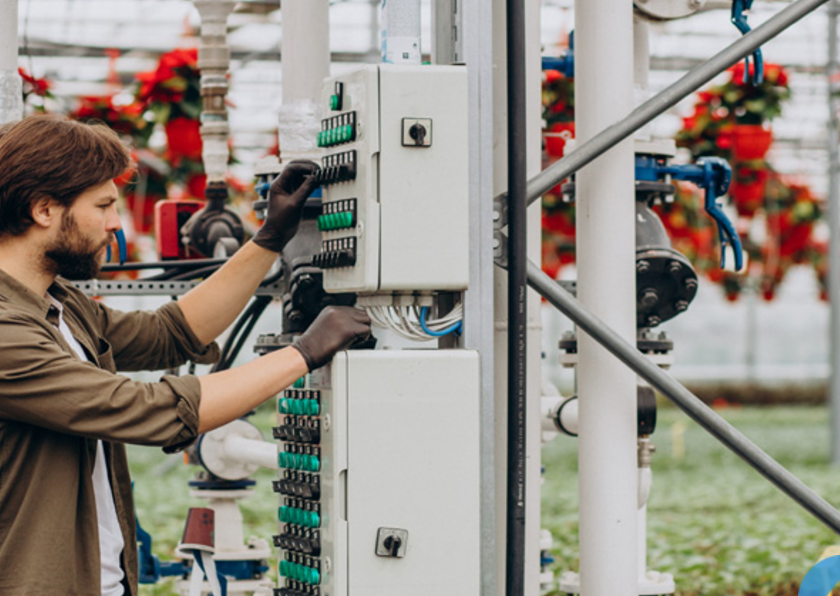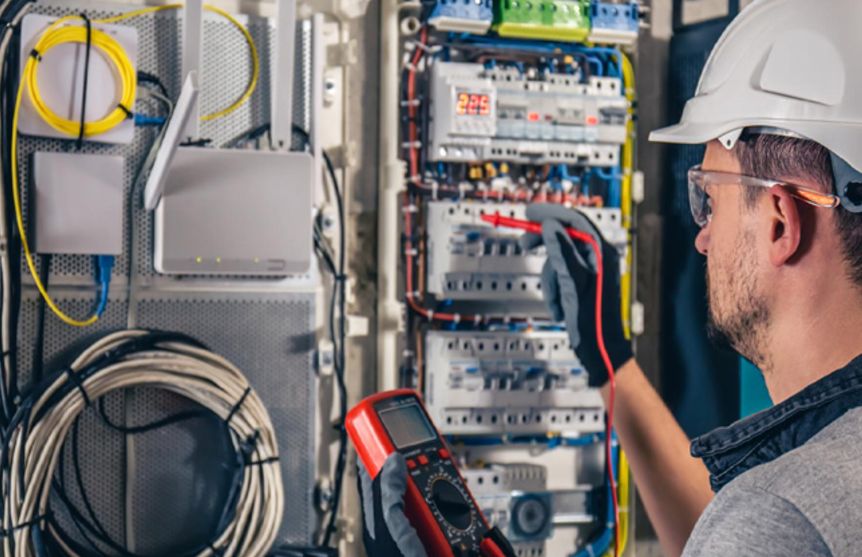In the modern business world, technology plays a crucial role in enhancing productivity, security, and efficiency within the office environment. Smart Office Solutions involve the integration of advanced technologies into office settings, allowing companies to automate and streamline various operational tasks. In a city like Dubai, known for its rapid technological advancements and innovation, Smart Office Solutions have become increasingly popular, helping businesses manage their workspaces more effectively.
Smart Office Solutions typically include automated lighting, climate control, security systems, smart conferencing tools, and energy management, all of which are designed to improve functionality and comfort in the office. These systems allow for remote control and monitoring through smartphones, tablets, or voice commands, offering convenience and better control over the office environment. This article explores what Smart Office Solutions are, their availability in Dubai, and what customers can expect when seeking out these solutions for their business.
A home automation system allows users to control and automate various appliances and systems in their homes, such as lighting, security, entertainment, and other electrical devices. With a central interface, like a smartphone app or voice-activated smart speaker, homeowners can easily manage their entire home. If you want to transform your home into a smart home, consider purchasing a system from reliable home automation system dealers. These dealers offer a range of home automation systems from different brands, ensuring you have plenty of options to choose from. A simple online search for home automation system dealers will help you explore the available choices and find the best deals.
Home automation system dealers offer a wide range of products that can transform your home into a smart and efficient living space. Here are some common products available:
1. Smart Lighting Systems
Control the brightness, color, and scheduling of lights remotely using a smartphone app or voice command. These systems can be integrated with other devices for automation, such as lights turning off when you leave the house.
2. Smart Thermostats
Smart thermostats allow you to regulate your home's temperature remotely and set schedules for heating or cooling. Some models also learn your preferences over time, optimizing energy usage.
3. Security Cameras and Surveillance Systems
Wireless security cameras and video doorbells enable you to monitor your home from anywhere. Motion sensors, night vision, and cloud storage features enhance security, giving you peace of mind.
4. Smart Locks and Doorbell Systems
Smart locks allow you to lock and unlock doors remotely or through biometrics, such as fingerprint or face recognition. Video doorbells let you see and interact with visitors remotely.
5. Home Theater and Entertainment Systems
Integrating entertainment systems with home automation allows you to control your TV, speakers, lights, and more from a single app. Smart TVs and audio systems can be synchronized for a seamless viewing and listening experience.
6. Smart Plugs and Switches
These devices allow you to control standard appliances, such as fans, lamps, or coffee makers, remotely or automatically, turning them on or off based on your preferences.
7. Climate Control Devices
In addition to smart thermostats, products like smart air conditioners, humidifiers, and dehumidifiers can be controlled remotely to ensure a comfortable home environment.
8. Automated Window Blinds and Curtains
Motorized blinds and curtains can be controlled remotely, set to a schedule, or linked to other systems such as lighting or temperature controls to create the ideal ambiance.
9. Smart Smoke and CO Detectors
These detectors offer advanced features like remote alerts, battery level monitoring, and integration with other systems to provide immediate alerts in case of emergencies.
10. Home Automation Hubs and Controllers
Home automation hubs act as the central controller, allowing you to connect and manage all your smart devices in one place. Popular platforms include Amazon Alexa, Google Assistant, and Apple HomeKit.
11. Automated Garage Door Openers
These allow you to control your garage door remotely, check its status, and even schedule open/close times from your smartphone.
12. Voice Assistants and Smart Speakers
Devices like Amazon Echo, Google Nest, and Apple HomePod serve as both voice assistants and hubs for controlling other smart devices in your home through voice commands.
13. Smart Irrigation Systems
Automated garden irrigation systems help maintain lawns and gardens by adjusting watering schedules based on weather conditions or soil moisture levels, saving water and energy.
14. Energy Monitoring Devices
These products track your home’s energy consumption, allowing you to monitor usage and make adjustments to save on utility bills.
15. Automated Pet Care Devices
Smart pet feeders, cameras, and automatic pet doors help take care of pets while you are away, giving you more control over their care and safety.
These products can be integrated into a comprehensive home automation system, offering enhanced convenience, efficiency, and security for your home.
2. Access to a Wide Range of Products
Dealers offer a variety of home automation systems from different brands, giving you more options to find the perfect fit for your home. They can help you compare features, prices, and functionalities to make an informed decision.
3. Professional Installation Services
Many dealers provide installation services, ensuring your home automation system is set up correctly and functions as intended. Professional installation can help avoid potential issues and ensure optimal performance.
4. Quality Assurance
Buying from a reputable dealer ensures that you receive high-quality products with manufacturer warranties. This provides peace of mind that the system will be durable and reliable for long-term use.
5. Customized Solutions
Home automation dealers can offer tailored solutions based on your specific requirements, helping you build a smart home that fits your lifestyle and preferences.
6. Post-Purchase Support
Dealers often provide after-sales support, including troubleshooting, maintenance, and upgrades. This ongoing assistance can help you resolve issues quickly and ensure your system remains up-to-date.
7. Competitive Pricing and Deals
Home automation system dealers may offer special discounts, promotions, and deals, helping you get the best value for your investment. They can also help you find cost-effective solutions that meet your needs.
8. Seamless Integration with Other Systems
Dealers can ensure that your home automation system integrates smoothly with other smart devices in your home, creating a cohesive and efficient setup.
9. Time and Effort Savings
Purchasing from a dealer saves you time by offering one-stop solutions for buying, installing, and maintaining your home automation system, without the hassle of dealing with multiple vendors.
10. Latest Technology and Features
Home automation dealers stay updated with the latest advancements in smart home technology, giving you access to the most innovative features and systems on the market.
1. What is a smart home?
A smart home is a residence equipped with devices that allow you to control various systems, such as lighting, security, heating, and entertainment, remotely or automatically. These devices are often connected to a central hub or app, which can be accessed via a smartphone, tablet, or voice commands.
2. How does a smart home work?
A smart home works through interconnected devices that communicate with each other via Wi-Fi, Bluetooth, or other wireless networks. These devices can be controlled remotely via an app or voice assistant, automating tasks like adjusting temperature, locking doors, or turning on lights.
3. What are the benefits of a smart home?
Smart homes offer convenience, energy efficiency, enhanced security, and better control over home systems. They allow you to automate tasks, monitor your home remotely, and make adjustments in real-time, improving your overall lifestyle and comfort.
4. What devices are typically used in smart homes?
Common smart home devices include smart lighting, thermostats, locks, security cameras, voice assistants (like Amazon Alexa or Google Assistant), smart appliances, and entertainment systems. These devices can be integrated into a cohesive smart home setup.
5. Do I need a smart home hub?
A smart home hub is not always necessary, but it can help connect and control multiple devices that use different technologies (Wi-Fi, Bluetooth, Zigbee, etc.). Popular hubs include Amazon Echo, Google Home, and Apple HomePod, which can integrate and control a variety of devices through voice commands or apps.
6. Can I control my smart home remotely?
Yes, most smart home devices can be controlled remotely using a smartphone app or voice assistant, allowing you to manage your home’s systems from anywhere with an internet connection.
7. Is it easy to install smart home devices?
Many smart home devices are designed for easy installation and can be set up by homeowners without professional help. However, more complex systems or integrations may require professional installation for optimal performance.
8. Are smart homes secure?
Smart homes can be secure if proper precautions are taken. It's important to use strong passwords, enable encryption, and keep devices updated with the latest security patches to protect against cyber threats. Using reputable brands also helps ensure reliable security features.
9. How much does a smart home system cost?
The cost of a smart home system varies depending on the devices and complexity of the setup. Basic systems with a few devices may cost a few hundred dollars, while more advanced setups with multiple devices and automation features can range from a few thousand to more.
10. Can I integrate existing devices into a smart home?
In many cases, existing devices like light bulbs, thermostats, and security cameras can be upgraded with smart features or replaced with smart versions. For example, you can install smart plugs to make traditional appliances controllable via an app.

Dubai, Business Bay

Dubai, Business Bay
Latest Customer Reviews
"Best service provider for cctv installation service in dubai."